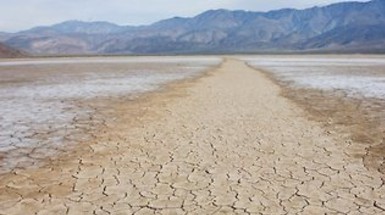Your podcast discovery platform
Curious minds select the most fascinating podcasts from around the world. Discover hand-piqd audio recommendations on your favorite topics.

piqer for: Climate and Environment Global finds
Andrea is a writer and researcher based out of Chicago. Andrea has a Bachelor's degree in environmental science from The Ohio State University and a Master's in Environmental Planning and Management at National Taiwan University, where she specialized in climate adaptation and urbanization. She writes for TaiwaneseAmerican.org, and sends out a biweekly newsletter which includes articles on politics, environment, identity, and intersections of race, class, and gender (http://eepurl.com/bPv-F5).
Scientists Can Now Blame Some Natural Disasters on Climate Change
We've often said that individual disasters cannot be attributed to climate change, since the science doesn't quite work that way. But one climate scientist asked why not? Sure, there are many factors that go into weather patterns, but what if we could attribute a weather event to climate change? It seems that it is now possible, at least in certain ways, thanks to developments in climate modeling. Individual event attribution is now a burgeoning field of climate science, and it has massive implications.
Extreme event attribution can be traced back to a paper from 2004, where "researchers compared simulations accounting for climate change with scenarios in which human-caused global warming did not exist. They found that the influence of climate change roughly doubled the risk of an individual heat wave. The key to the breakthrough was framing the question in the right way—not asking whether climate change "caused" the event, but how much it might have affected the risk of it occurring at all." The improvement of climate models in recent years have made this possible, and many of these studies have very specific questions framed in very specific ways. "Today, scientists still generally agree that it's impossible to attribute any individual weather phenomenon solely to climate change....But what scientists can do is investigate the extent to which climate change has influenced a given event."
This new field of study is poised to change the legal landscape. Lawyers could use this new kind of evidence for climate litigation against companies, governments, and even whole industries. There are still areas where the methodologies must be refined, but the growth of this area of study may be a sign of big things to come.
